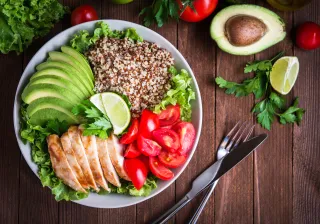How can our food culture, customs, and habits be changed for the better of humankind and the Earth? How can we motivate consumers to make sustainable changes in their everyday lives?
Increased climate sustainability requires a significant reduction in average meat consumption, according to a study by Saarinen & al. (2019). But should actual restrictions be placed on the consumption of meat? The question is tricky because food is a personal matter, and discussing it leads to a mixture of emotions, senses, and personal preferences. The topic needs wide-ranging examination to solve the puzzle, paying attention to consumer behaviour and its potential long-term development.
Our recent questionnaire results from seven European countries in 2021 (n = 6600) indicated clear differences among European consumers in what motivates them to reduce their meat consumption. In Finland, the most popular reason was personal health and well-being (52% of respondents). Consumers in Italy and Poland voiced similar thoughts. Meanwhile, three reasons were almost equally strong among Swedes: environment and climate change (34%), ethical considerations like animal welfare (27%), and own health and well-being (27%). In Finland, 18% of respondents raised the environment and climate change as the most important reason. Consumer climate change attitudes are shifting, making it likely these numbers will change. Moreover, themes discussed in the media and public debate vary from country to country, influencing consumer choices and actions.
Nevertheless, not all responsibility for food choices should fall on the shoulders of consumers. After all, we buy and consume only what we find in the market. In the bustle of modern life, easy choice and food prices are essential for many consumers.
The whole food value chain must support consumer behaviour toward a more sustainable direction while considering the price and other currently valued features. In addition, consumers should be capable of making reliable comparisons of the sustainability of different food products.
In our ongoing research projects at VTT, we examine sustainable food consumption from varying points of view. We create profiles of consumers with different attitudes toward food sustainability. We seek out consumers interested in the environment and sustainable consumption but not living according to their values for one reason or another. We encourage them to consider what keeps them from more sustainable consumption, initiate them to try small changes in their everyday lives, and describe the experience of changing their routines. We also aim to test how grocery stores can support consumers in making more sustainable choices. In addition, we are researching the possibilities of new food technologies in promoting sustainable food consumption. The first results of these endeavours will be out in late spring.
Building a sustainable future for food is not possible without cooperation. A wide-ranging and fact-based discussion is necessary when transitioning to a sustainable food culture. It helps to create a fair basis for consumption decisions and to increase the understanding of sustainable operating methods among various actors. We invite all food chain actors to participate in the sustainability discussion to define the necessary choices and measures that lead our food system toward a more sustainable future.
Anu Seisto
The collection of data related to the consumption of sustainable food is part of the SUCCESS project funded by EIT Food.
The question of reducing meat consumption was part of a consumer survey of the EU-funded NextGenProteins project.





